Learn these Swiss German phrases before you travel to Switzerland so you can impress the locals! Language is a beautiful way to connect with others, and a simple hello goes a long way.
The Swiss have a way with words, though alpine backdrops and indulgent cuisine usually take the spotlight.
With an affinity for luxury in everything from kitchenware to wristwatches, it’s no wonder Switzerland’s linguistic ancestry is often overlooked.
Even after two years of living in the country, I find that the diverse relationships between language and identity are widely avoided.
Languages of Switzerland
This bite-sized piece of paradise is home to four distinct linguistic regions and official languages:
- German
- French
- Italian
- Romansch
While each language has its own eccentricities, Swiss German, a dialect of German, undoubtedly flaunts the most Swissness.
The Swiss dialect is mostly oral without a uniform writing system. That’s right: No writing system.
This is where it gets interesting.
Regional dialects developed through centuries of alpine isolation. To this day, people speak these dialects in their everyday lives.
While there are exceptions and some standardizations do exist, most words are simply sounded out. This can lead to some humorous differences in spelling or verbage, even between nearby communities.
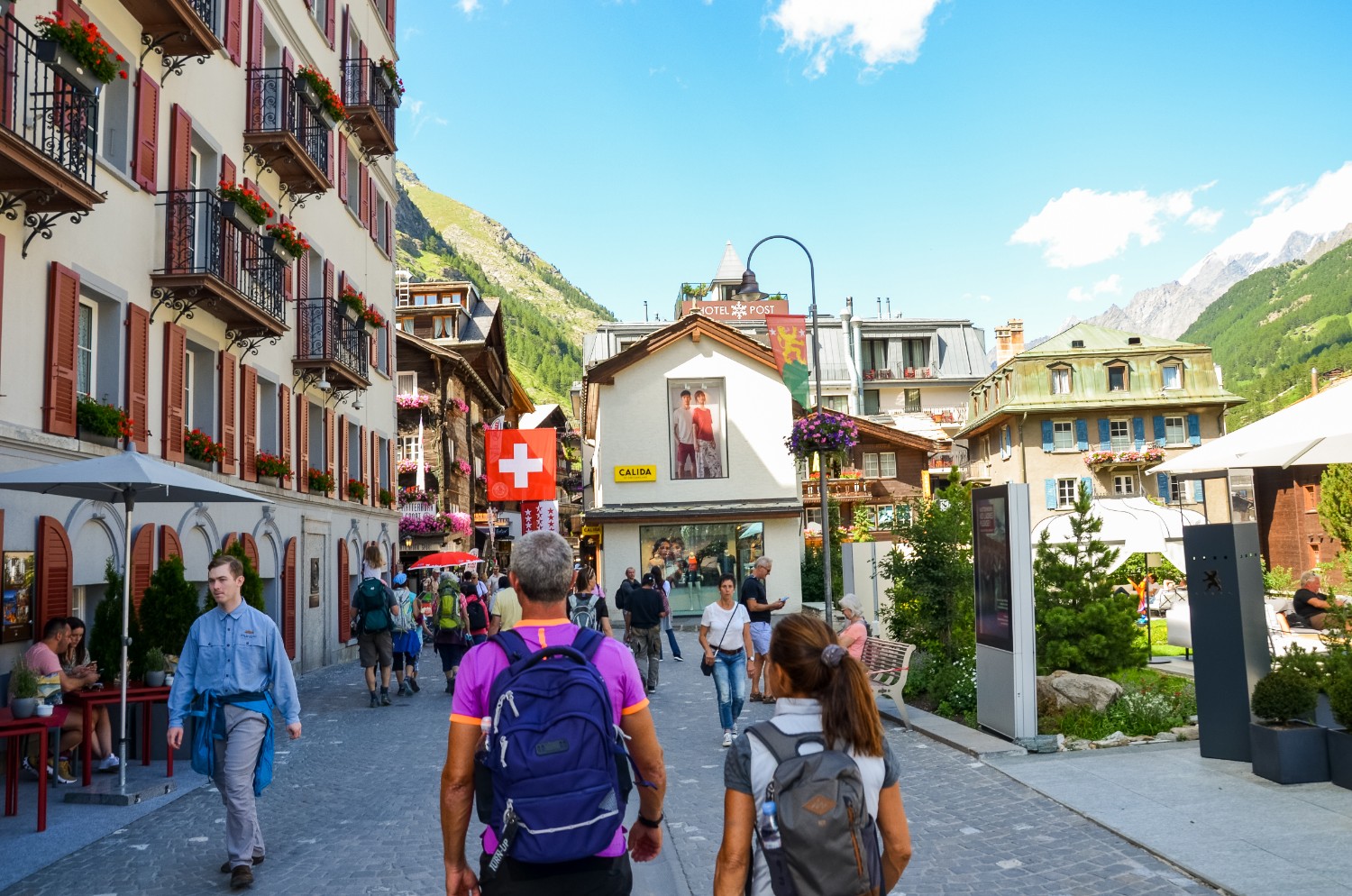
What’s even more captivating is the degree of variance between these dialects.
They can be so distinct that — in some cases — they are not mutually intelligible.
This forces people from opposite ends of the country to speak High German, otherwise known as the language most commonly associated with Germany. Although spoken by all speakers of Swiss German, High German is considered a very direct, harsh-sounding second language. It is to be avoided because of its distinct lack of Swissness. (I’m only partly joking).
I spent two years in contrasting regions of the country; one of them with a host family who contributed to my view of Swiss food culture.
The following Swiss German phrases offer a glimpse into my experience through anecdotes about regional cuisine.
Any of these uniquely Swiss words will endear you in the hearts of the people as you wine and dine your way through a country built on language and deep-rooted community bonds.
Useful Swiss German Phrases for Travelers
Swiss German Pleasantries & Culture
1. grüezi (grew-tzi): hello
Swiss German is spoken with undulating musicality and rhythmic cadence that seems to reflect the reserved nature of the people. They roll their r’s on the tip of their tongues, giving it a Spanish flair.
So go ahead, give a warm grüezi to the maitre d’ as you enter a restaurant for your first Swiss meal. Or greet some passers-by on your way up the Matterhorn.
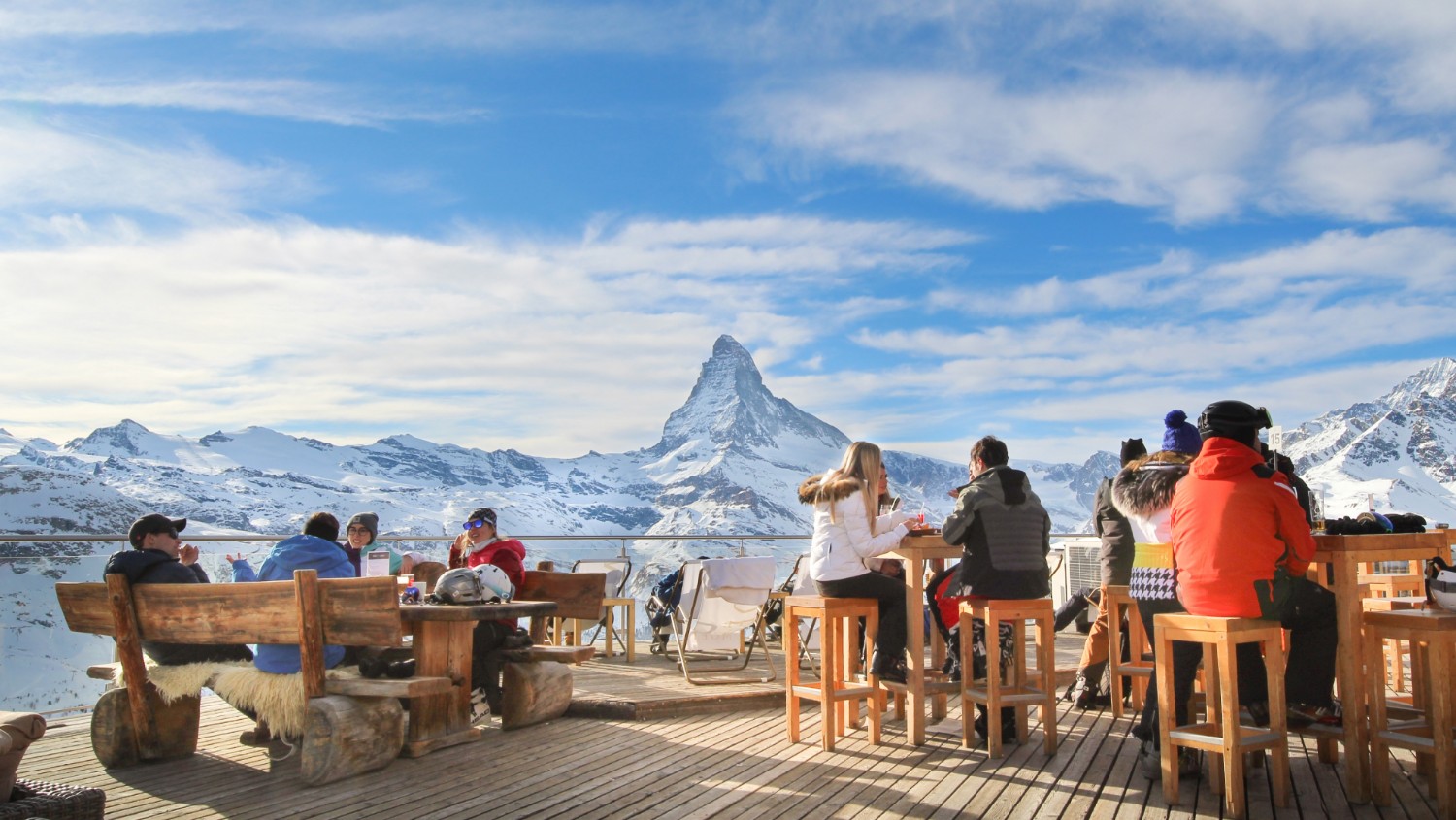
Locals enjoy exchanging this salutation with strangers, especially in small towns. Just be sure to make eye contact.
If you tack wohl (well) on the end, you’ll emphasize your pure euphoria for being in one of the world’s most beautiful countries.
2. En guete (on-goo-et-ta): bon appetit
Add this one to your lexicon because you can’t get away without it.
En guete is the French equivalent to bon appetit, or the Italian buon appetito.
It’s a crucial pre-meal component. Skip it and you might be given a sideways glance for such boorish manners.
If dining with a group, wish them en guete mitanand, regardless of their status, age, or how well you know them. You should even say this to kids, although they are still Swiss-in-training so don’t always expect to hear it back.
The word mitanand simply comes from the High German word miteinander, roughly translating to “everyone together” or “you all”. However translated, it addresses the group rather than a single diner.
No biggie if you drop it, though. Your companions will still appreciate your attempt to learn a bit of their language.
3. merci vill moll (mehr-see feel mall): thank you
The meal is over. You lean back to digest the block of bread and cheese that now fills your soul. The server swoops and takes the dishware.
What do you say? It’s now time for one of the most amazing amalgamations of language, ever.
At first glance, merci vill mol looks French simply because of the first word we all know so well. Dig deeper and you’ll see this is a classic Swiss invention.
The last two words in the expression, vill mol, stem from High German meaning “many times”. Put it all together and you’ve got “many thanks”.
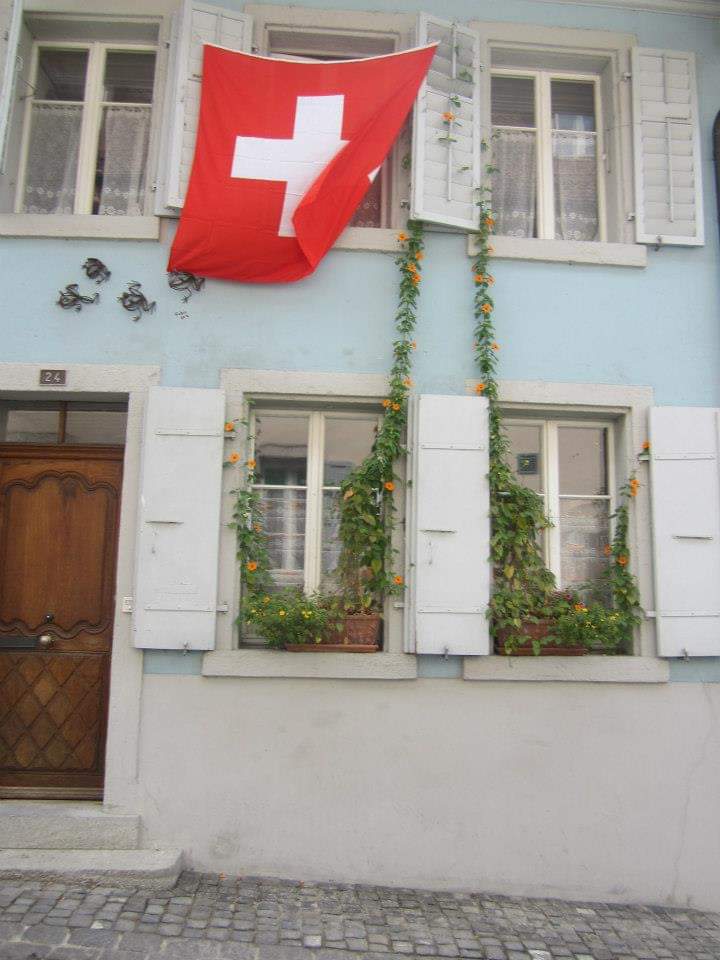
This is not the only case of the French language sneaking its way into Swiss dialect. The French words for scooter, sidewalk, chicken and wallet are just a few of the many that have been adopted into dialect, being preferred over the actual German word.
It’s not always recognizable, though, as French words are spoken with some variation of the throaty, yet quaint Swiss accent.
Even so, it gives us a glimpse into how two culturally diverse societies have coalesced and created a sense of togetherness through language.
4. znuni (ts-new-nee): morning snack
The Swiss are early risers, especially in the Germanic cantons.
Most businesses these days open around 9:00 or earlier. But in the old days, shops opened as early as 7:00am.
With the advent of the modern work schedule, places are opening later, but what remains from yesteryear is the pre-lunch pick-me-up known as a znuni.
Literally meaning “to nine”, people around the nation get together for a coffee, croissant, chocolate bar, or even a sandwich.
It’s a time akin to English tea or an American coffee break.
This was never meant to catch up on work or social media, though. Instead, this was time set aside for building camaraderie among workmates.

It’s not limited to adults either. For kids, it’s an absolute must in their morning regiment.
In my experience, putting a snack on the table is also a great way to find children lost in the house.
5. Gömer es z vieri go nä (gum-mer ehs tsa-fi-ree go neigh): get coffee with something sweet at 4pm
This one seems oddly specific, but it makes sense in context. Let’s break it down.
The Swiss take their brew seriously. In fact, some studies claim the Swiss drink up to an average of five cups per day. Others report they are the top coffee consuming nation in the world per capita. Impressive.
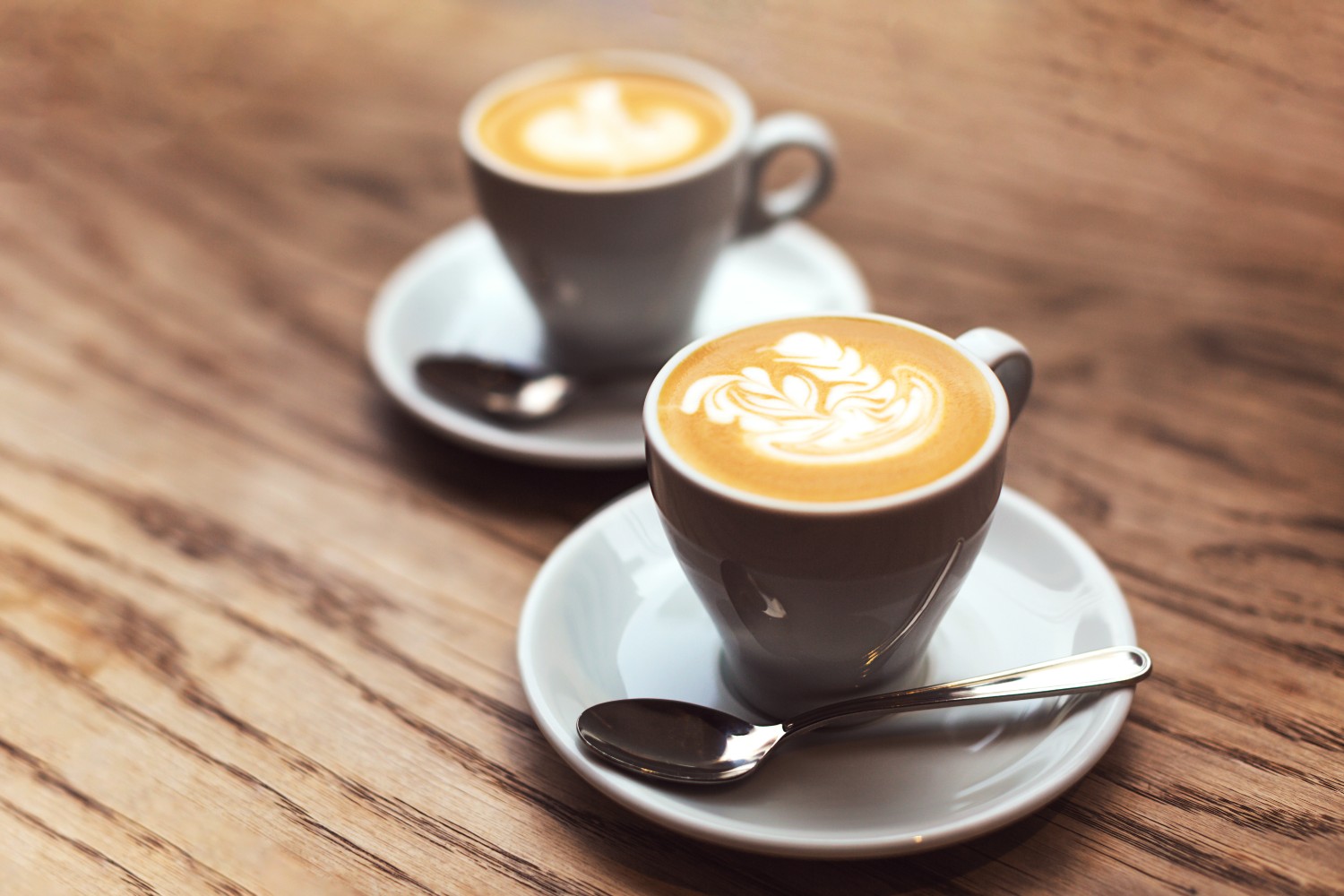
The next part of the phrase mentions getting something sweet. Why so vague? Because the sweets vary just as much as the dialects do!
Canton Aargau is known for carrot cake while Canton Zug is home to Kirschtorte, sponge cake with regionally produced cherry liquor.
These are just a few of the many tempting regional specialties.
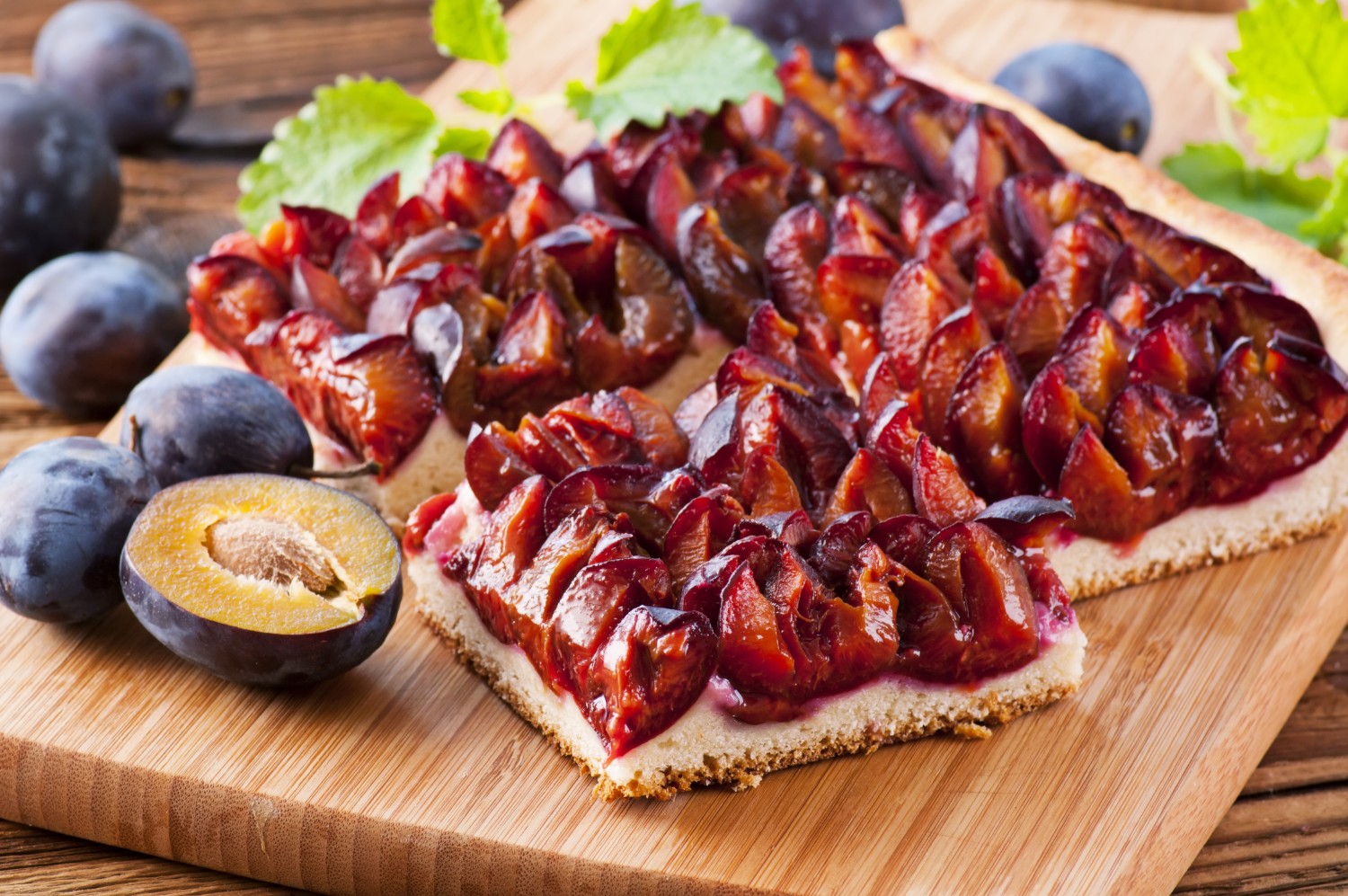
Coffee and cake aside, this colloquialism is all about being with those you love. There is no better way to bond with friends after a long day with an afternoon pastry and perk.
Food & Drink Words in Swiss German
6. wy (vee): wine
The Swiss produce great beer. Just as important, though, is that they also produce voguish wines. Double win!
Most of it is saved for domestic consumption, so treat yourself. Unless you’re willing to fork out some serious cash, you can’t get this at home.
Small producers have access to such unique terroir that big-name grape varietals like Pinot Noir, Merlot, and Chardonnay shed their traditional expressions for a Swiss spin.
There are also pioneers in the industry known for producing lesser-known yet equally ambrosial varietals like Chasselas, Gamaret, Arvena, and so many others.
Let your server recommend a glass of wy if your wine and food pairing skills are rusty. The Swiss are masterful in the art of fermentation and will surely have something for every palate.
7. schoggi (shock-key): chocolate
After spending so much time around so many local families, I learned that many Swiss keep more of the sweet confectionery in their home than vegetables.
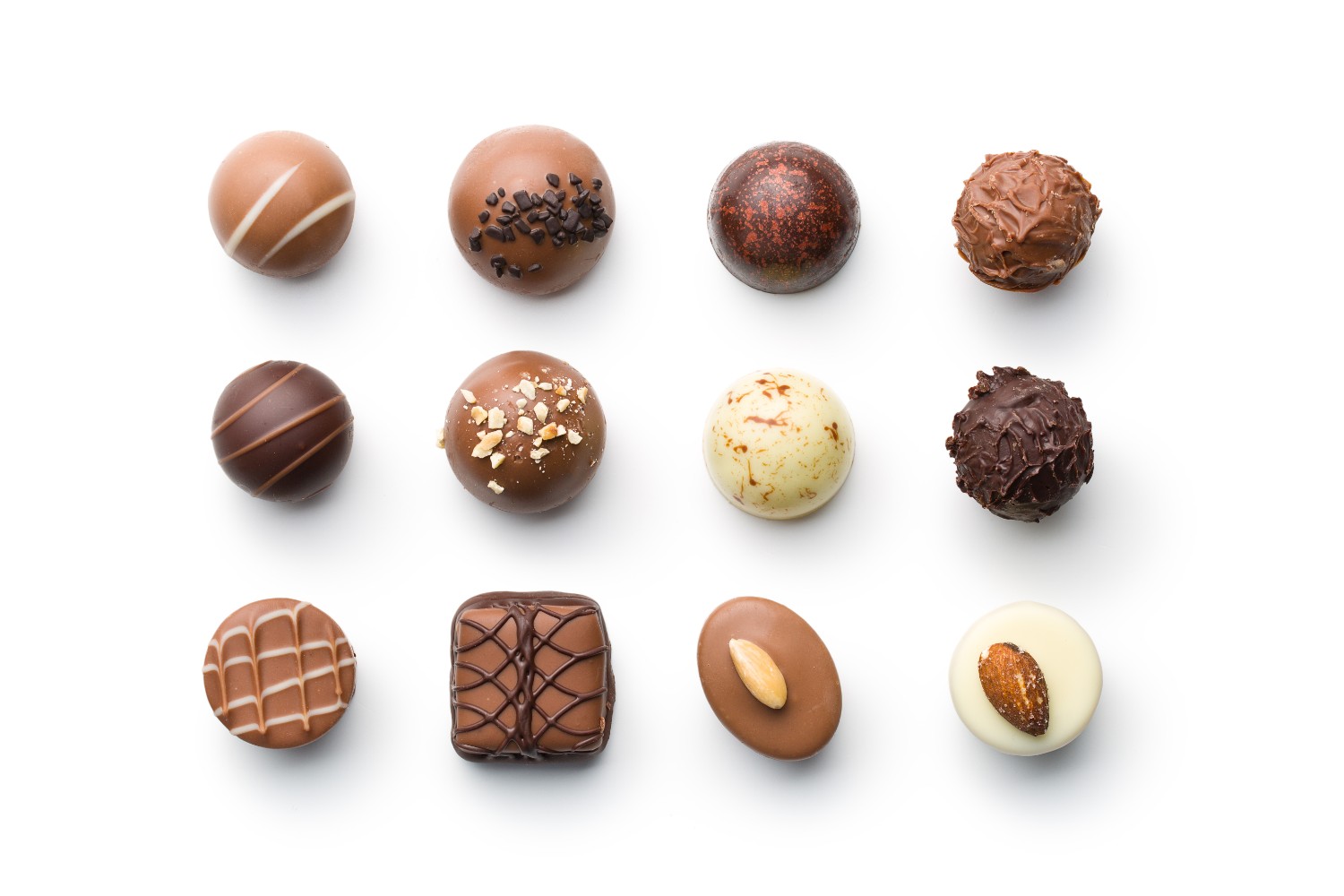
That was a bit uncomfortable for me, coming from a society that epitomizes kale smoothies as a nutrition staple. Two extremes, I know.
To top it off, they ate chocolate every night. Just the thought of it made me breakout.
It only makes sense, though, since chocolate has been a Swiss niche since the 19th century. Some might even say it’s their most notable contribution to the culinary world.
Take Francois-Louis Callier, for example. He was the creator of the first chocolate bar and founder of the world’s oldest chocolate brand.
And with that, Swisstory was created.
Eventually, I got over my sugary phobia and learned to indulge in moderation. Besides, what’s more Swiss than chocolate?
8. müesli (mo-es-li): muesli/similar to granola
Everyone knows müesli as the trendy alternative to granola, but it’s more than a short-lived craze.
In 1900, Doctor Maximilian Britcher-Brunner served a new dish at his health clinic. It included honey, nuts, lemon juice but most importantly, freshly grated apples. In fact, the original recipe called for ”two or three small ones”, as well as the skin, core, and seeds! Curiously, it only called for one tablespoon of oats.
That being said, müesli has had a serious makeover in the last century or so. And maybe for the best.
The word can be broken down into two parts: mües meaning “mush” and li. The latter is the diminutive, giving it a sense of smallness (comparable to -ito in Spanish, or -chen in German).
So there you have it. Little mush.
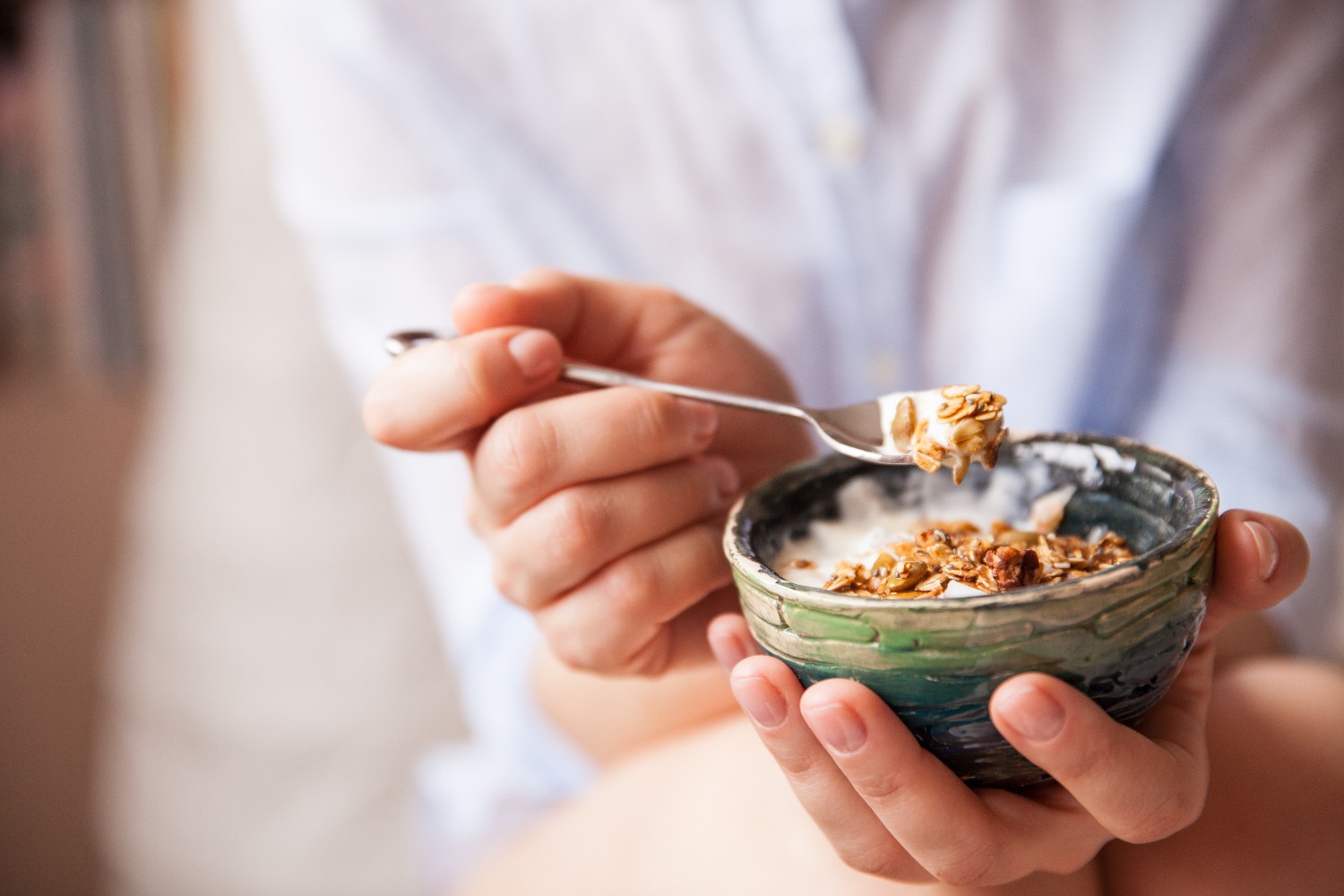
Be careful with pronunciation. It’s müesli (mo-es-lee) and not müüsli (mew-sli).
The former is a well-known Swiss health food while the latter a gender-neutral term of endearment (literally meaning, little mouse).
But I suppose that’s practical if you’ve got a Swiss lover in your life.
9. grossmutter (gross-moo-ter): burnt cheese as a delicacy
Fondue is a community dish. Made for sharing between friends, family, and lovers, fondue is sure to please those fortunate enough to not be lactose intolerant.
Many think of it as simply melted cheese in a pot. However, the experienced ones know of a valuable delicacy hidden at the bottom of the caquelon, or fondue dish.
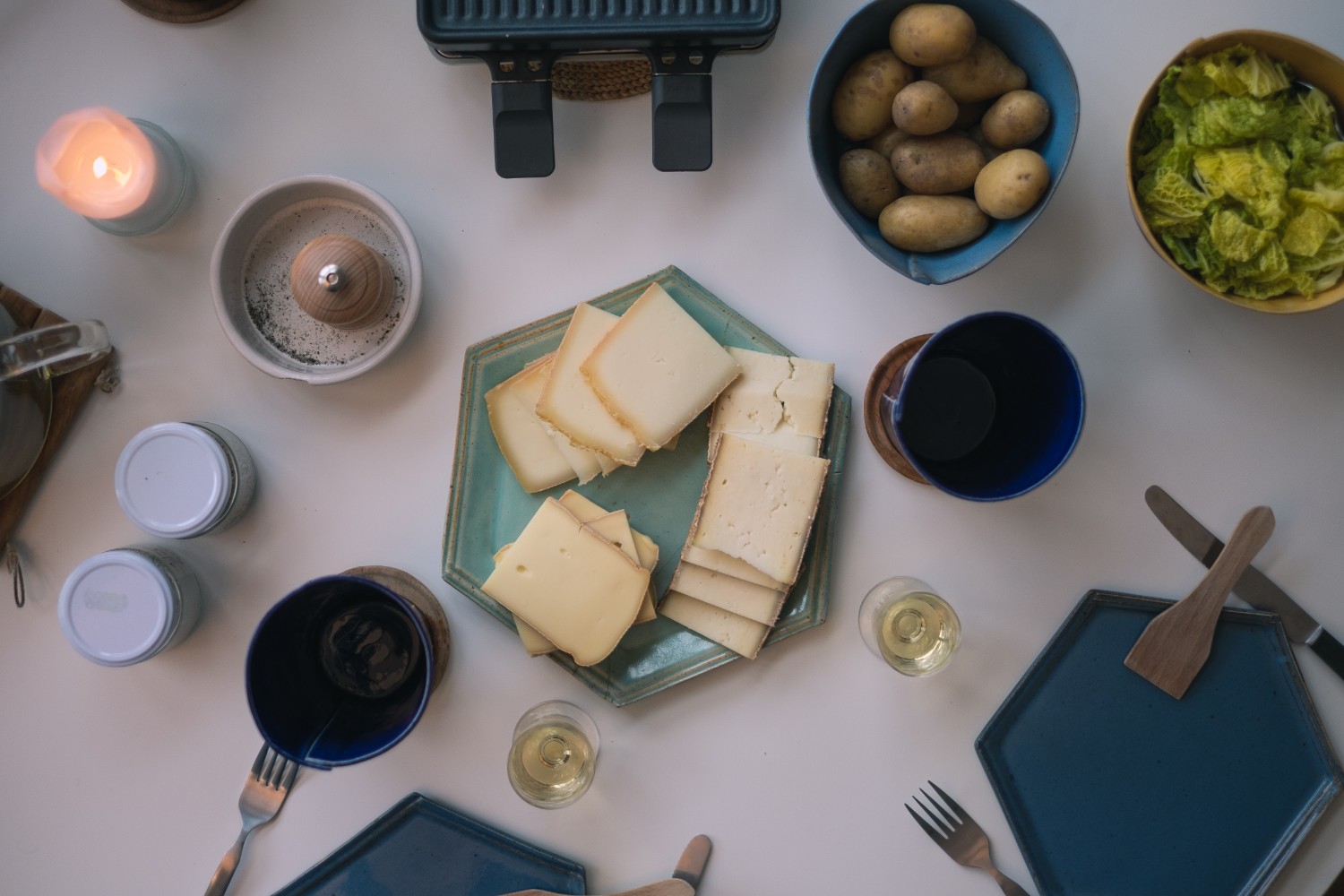
The Grossmutter is the coveted layer of cheese burnt onto the bottom. It’s delicate, crispy, and is arguably the best part of the meal.
This fine piece of culinary delight unfortunately has no English equivalent.
In dialect, however, it goes by a few aliases including crouton or nun. The most commonly used word varies by region.
I learned this term while dining with a friend in the mountainous eastern region, Appenzell. Later, I mentioned the term Grossmutter to a friend from Zurich and he had never heard of a word for that type of cheese before.
It just goes to show how much the Swiss dialects vary over such a short distance. And that perhaps people in Appenzell enjoy burnt cheese more than in Zurich.
Don’t waste any more time. Get the Grossmutter before it’s too burnt to enjoy and be sure to share.
10. mürgu (murr-goo): the first cut of a loaf of bread
There’s a proper bread for each time of day in Switzerland. Let that sink in. A carb-laden life would be unimaginable for many of us in North America, but it’s a pure fact in this alpine nation.
Morning is ripe with bakeries selling sweet and buttery treats, like croissants (often with chocolate).
By afternoon the shelves have been restocked with fresh rolls for sandwiches.
Heavier, grainier loaves have been set out just in time for the evening rush.
For a year, my host family served meals centered around bread. Sometimes it would be seedy and dense, others would be perfectly crispy on the outside and fluffy on the inside.
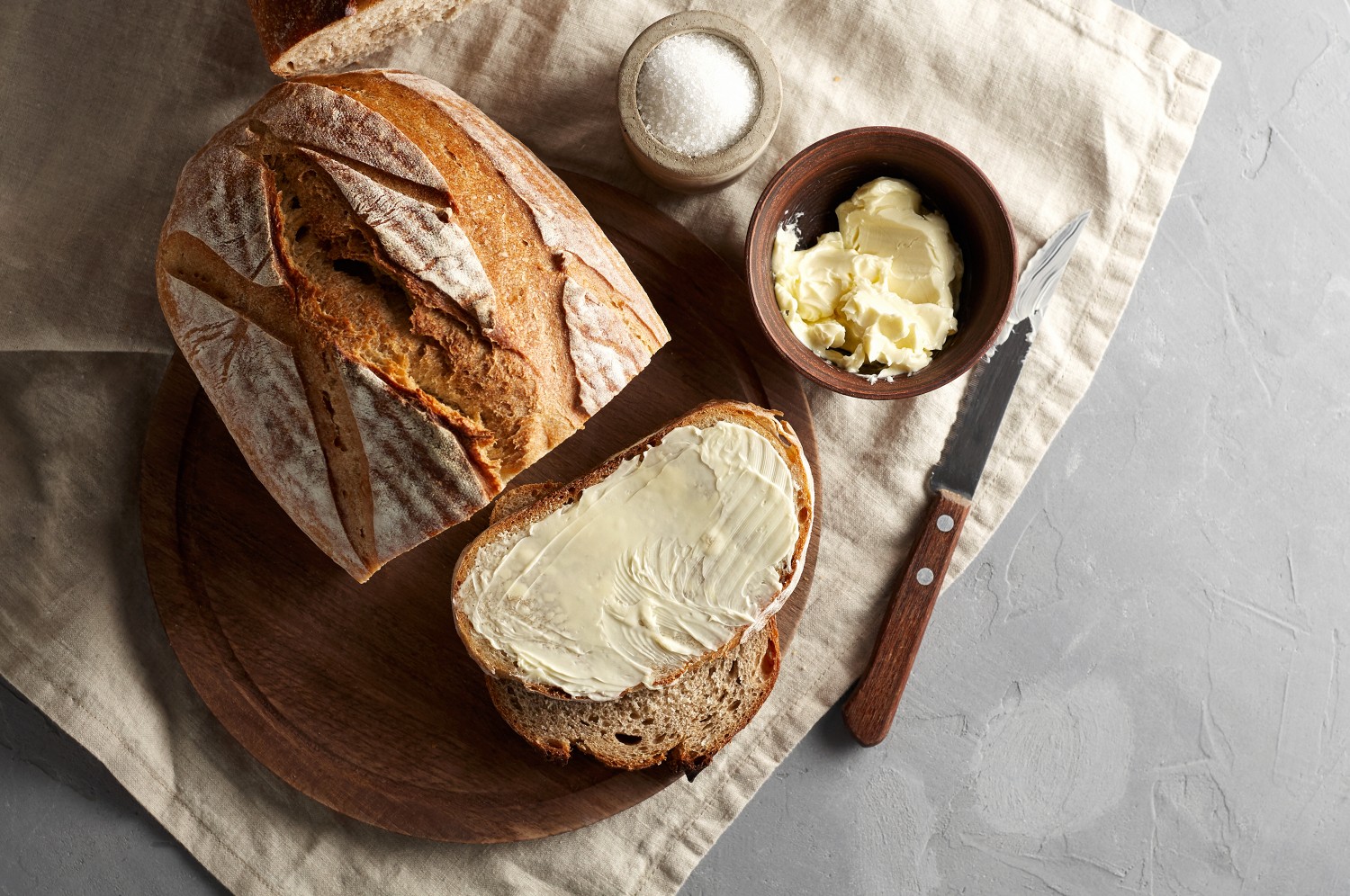
No matter the loaf, it would always be served steamy warm with a side of butter. The scent would waft through the house. The knife would cascade through the crust. The sound of crumbs flying and an assortment of butter and jams being set on the table signaled an important time for families.
Like so many other Swiss, bread time meant mealtime. It was a time to connect.
Bread gives people a reason to come together and the mürgu, the bulbous slice off the end, is just a symbol of their familial love and togetherness.
With that I implore you to enjoy everything Switzerland has to offer. From its cozy cuisine to its layered linguistic intricacies, this county is sure to bedazzle travelers of all walks of life.

Are you ready to practice your Swiss German phrases on your trip to Switzerland? Let us know if this was helpful!













































